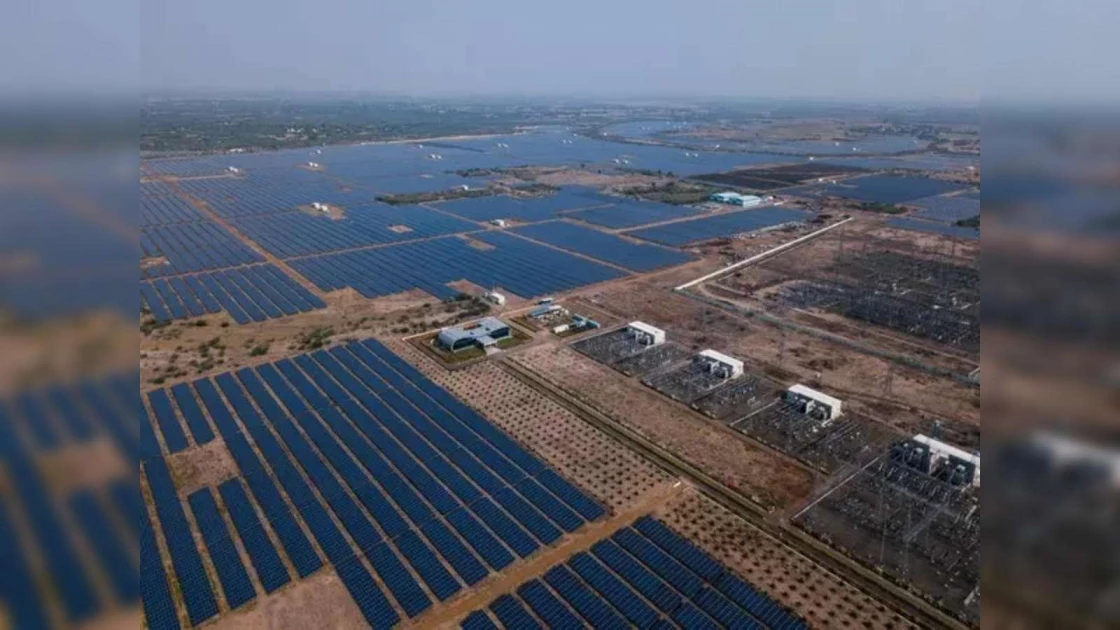OPINION: Renewable energy and climate change policies are inseparable


Audio By Vocalize
The implementation of a carbon tax has been a significant incentive in many developing economies, compelling corporations to align with government sustainability policies.
The primary objective of these policies has been to ensure that corporations integrate environmental, social, and governance (ESG) considerations into their operations and branding strategies.
Many corporations have responded effectively, incorporating ESG principles into their core business models, not only due to regulatory pressure but also because investors increasingly favor companies with strong sustainability commitments.
The financial incentives as well as investor confidence associated with energy management tactics and utilisation of renewable energy, have outweighed initial concerns about return on investment (ROI), even though payback periods are not always predictable.
Energy investments, particularly in renewable energy, have historically been perceived as capital-intensive endeavors that many corporate leaders hesitated to pursue. However, upon analyzing long-term financial benefits, numerous multinational corporations have embraced sustainability initiatives.
This shift has been driven by the realization that clean energy adoption has not adversely affected their bottom line. As a result, many businesses continue to advance their renewable energy strategies, despite the increasing voices of climate change skeptics.
Prominent corporate initiatives highlight this trend. Walmart’s Project Gigaton, for instance, has focused on reducing greenhouse gas emissions across its entire supply chain, urging suppliers to adopt energy-efficient and low-carbon practices. Microsoft, on the other hand, has implemented an aggressive internal carbon fee policy, incentivizing individual offices to improve energy management by rewarding efficient operations and penalizing those that fall short.
The funds generated from this fee are used to maintain Microsoft's carbon neutrality and support sustainability projects. These strategic approaches have transformed the perception of corporate sustainability, demonstrating that emissions reduction can be both an environmental and financial win.
However, political shifts can significantly impact corporate sustainability commitments. Walmart’s decision to eliminate its Diversity, Equity, and Inclusion (DEI) program following Donald Trump’s re-election has raised concerns about the future of its ESG commitments.
The list of companies who have had such goals engrained in their cultures is long and the question lingers for all. Was this an event forced upon them by the policies of the government of the day or an acceptance of facts and dare-I-say reality of the benefits of this shift.
Historically, the advancement of renewable energy has been closely tied to climate change policy, and while political administrations may introduce policies favoring fossil fuels, fundamental economic and environmental realities remain unchanged.
The exploration and utilization of fossil fuels are not only resource-intensive but also require long lead times before yielding returns. The high capital expenditure involved in fossil fuel extraction is comparable to, if not greater than, the costs of renewable energy investments.
Established fossil fuel companies may continue to operate profitably, but emerging players face uncertainties regarding policy reversals that could reinstate stringent carbon regulations.
Such unpredictability makes long-term investments in fossil fuel projects risky compared to the increasing viability of renewables.
For economists, predicting the next significant shift in the energy sector presents a challenge. However, for energy experts, the trajectory is clearer. The primary drawback of renewable energy—intermittency—has been significantly mitigated through advancements in energy storage technology, particularly in the electric vehicle (EV) sector, which continues to develop more efficient batteries. These technological improvements are making renewables an increasingly reliable and cost-effective option.
Governments have utilised both incentives and penalties to drive corporate sustainability. When incentives such as carbon credits and clean energy subsidies have not been sufficient, carbon taxes have served as a regulatory deterrent against excessive emissions.
However, some critics argue that the carbon credit system has allowed large corporations, particularly in Asia and the Middle East, to expand operations while engaging in offset schemes that disproportionately affect regions such as Africa and South America.
The argument suggests that these companies engage in a "zero-sum game"—releasing emissions while compensating through reforestation initiatives. Yet, such measures have led to the planting of more trees than ever before.
The financial sector has also played a role in reinforcing corporate sustainability. Investors have increasingly prioritized ESG-aligned businesses, rewarding them with higher valuations and increased capital access.
The carbon tax, initially viewed as a punitive measure, has ultimately driven corporate investments in sustainability. The unexpected financial benefits of these investments have solidified companies' commitment to ESG principles, making it unlikely that they will abandon their efforts even if regulatory pressures ease.
Policy makers face the complex task of balancing ideological divides. While some factions demand deregulation and fossil fuel expansion, economic realities favor renewable energy. Renewable energy sources are becoming increasingly cost-effective compared to fossil fuels.
The growing demand for affordable and sustainable energy solutions underscores the reality that renewable energy and climate change policies, while closely associated, are not inseparable. Rather, they coexist as part of a broader transition toward a more sustainable and economically sound global energy landscape.
The shift toward sustainable energy is not just an environmental imperative but an economic one.


Leave a Comment